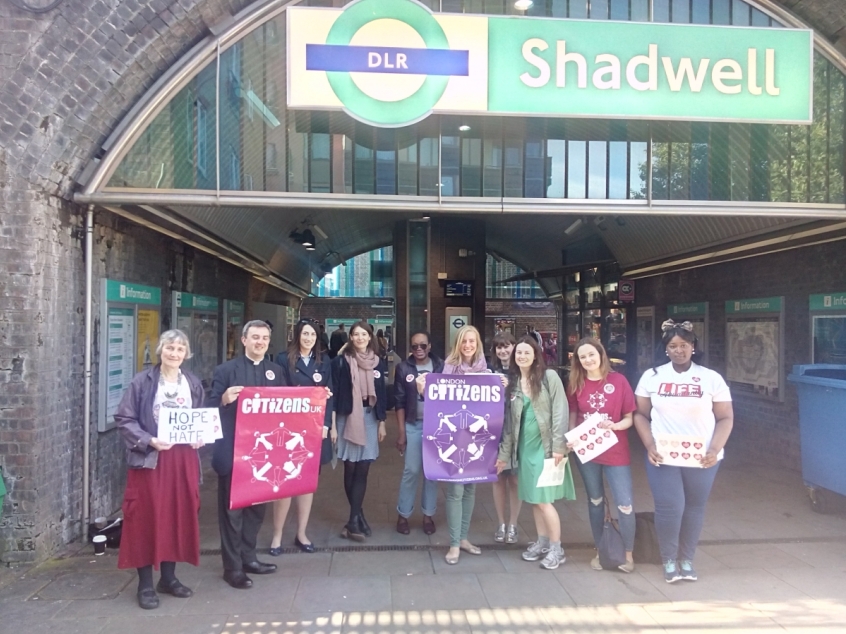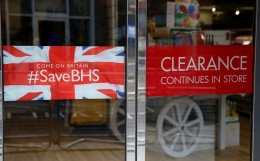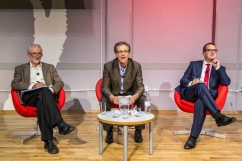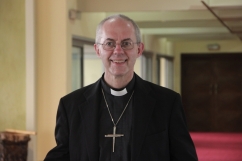
In the aftermath of the election of Donald Trump and Brexit, large numbers of commentators have been diagnosing the reasons for these unexpected electoral results. Lots of the analysis has been worth reading, but has focused on large-scale economic factors (the NAFTA trade agreement, for example, or European free movement of labour).
While these large factors are undoubtedly important, there are also issues at the other end of the scale which haven't been given as much air time. A piece in the Guardian highlights this, and is worth reading. In it, Peter Lewis describes how membership of local civic institutions has declined markedly in the last few generations.
Trade unions, voluntary organisations, political parties and sports clubs have all suffered the same or similar decline. In the West, churches, of course, have also matched this fate. The 2011 census in the UK showed a decline in the proportion of people who self-identify as Christian from 71 per cent to 59 per cent – a steep decline in only a decade.
That decline is reflected in the number of people who actually attend church. Membership of churches is hard to calculate but taking the Church of England as a yardstick, the story is not good. Weekly attendance has gone down seven per cent in just five years. Other churches may be faring slightly better, but the overall trend is toward smaller membership of churches, which inevitably means the closure of churches and local areas which used to have lively congregations of different denominations now are reduced to one or even no church presence.
This issue is of concern for those of us who believe in the reality of God, the importance of worship and fellowship, and the role the church plays in facilitating those. However, there is a wider context. Local churches have been at the heart of building the common good for centuries. If their existence is under threat (along with unions and other voluntary associations) society will be worse off.
In this context, churches play a vital role as 'intermediary institutions' between the very small (the individual, the family) and the very large (the government, the market). Churches play this role in a number of ways. They are forums for people to associate and to organise on issues that matter to them. Some examples of this include the Living Wage campaign, begun by churches, the battle for affordable housing, and the successful campaign for capping the cost of credit.
Churches are places where you learn to do the art of politics in a different way. Unlikely people are given the chance to speak in public. Churches have a broader social mix than most workplaces and a wider age range as well. In churches we have to negotiate difference and learn to be open and generous, even with those we find difficult.
Local churches also make a huge difference on a global scale. From being the pioneers of the Fair Trade movement, to successfully campaigning for the cancellation of developing world debt, what happens in local churches can have reverberations around the world.
This might sound good in theory, but in an age of online activism, isn't all this redundant? Lewis argues that it's not. "Virtual networks have been found wanting when it comes to winning on the issues that matter: from climate change to asylum seekers, the noise has not translated into positive change," he says. "Yes, they have been useful vehicles for building coalitions in support of the issue of the day, but then they are on to the issue of tomorrow with equal levels of energy and outrage. That's why a strong trade union movement – and industry associations, environmental groups and churches too – not only promote the interests of their members but make the broader society more stable and resilient to populist disruption."
This is not a compelling reason to believe in God, or a certain set of truths about the Christian faith. It is, though, a reason for remaining committed to local church. The world in 2016 is a confusing and at times, scary place. The only way we can challenge that – and ensure there is an alternative to the political short-termism that has got us here – is by organising alongside our neighbours.
Solidarity is a key virtue for the renewing of our common life. It's something we as Christians inherently understand. Jesus, our brother, suffered so that we might have life. That gets translated into the remarkable care which churches around the world show to their communities. What the world needs now is a good old dose of that solidarity. You'll find it at your local church this Sunday.

















